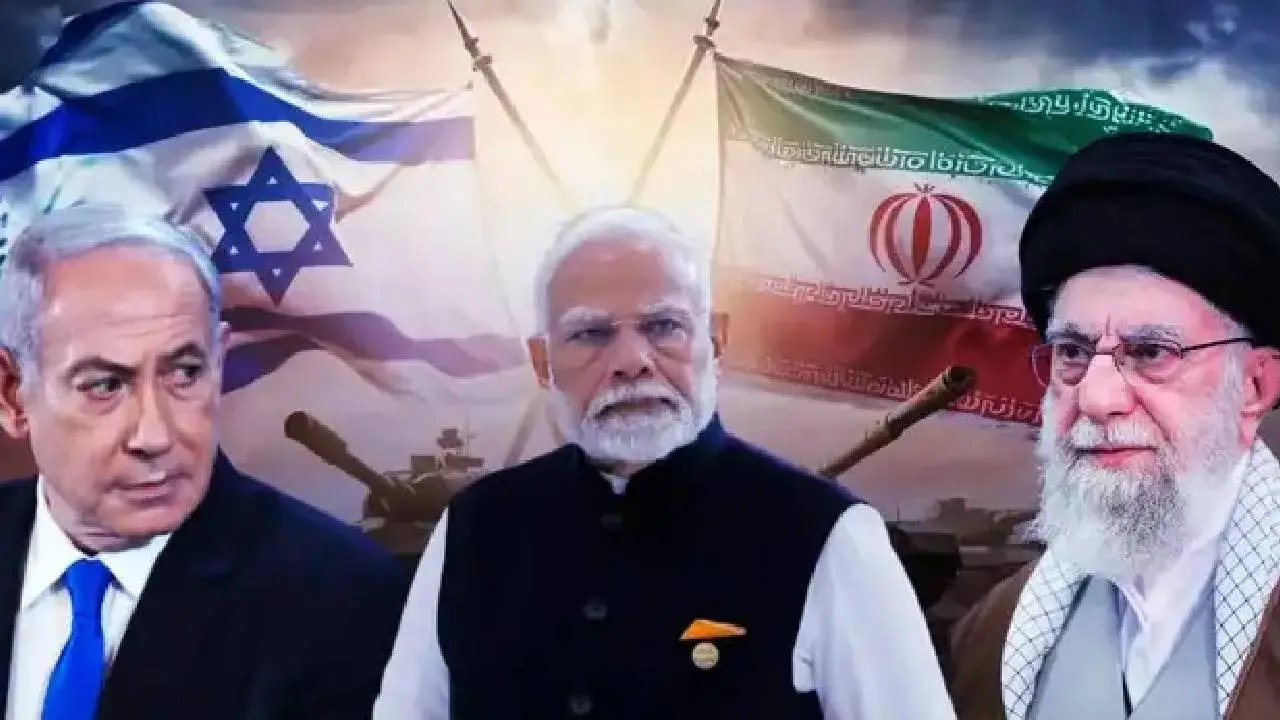
As Missiles Fly
International News: India is walking a tightrope once again. With the Israel-Iran conflict intensifying by the day, New Delhi is finding it hard to take sides. On one hand, Israel is among India's most crucial defense partners — supplying cutting-edge weapon systems, surveillance tech, and deep intelligence cooperation. On the other, Iran holds critical value for India’s long-term regional strategy, especially due to the Chabahar Port project, energy links, and Central Asian access.
This geopolitical clash has left Indian policymakers scrambling to preserve both relationships without appearing biased or antagonistic. A wrong signal to either side could jeopardize years of diplomacy and billions in economic stakes.
The timing of this crisis could not have been worse for India. With elections approaching and oil prices already soaring, a full-scale Middle Eastern war could upend India’s economic recovery. Iran has long been a crucial crude supplier for India, and despite U.S. sanctions, India maintained steady energy ties with Tehran until recent years. Now, with missiles flying between Tehran and Tel Aviv, India’s diplomatic core is under pressure to issue statements that are neutral yet firm. The Ministry of External Affairs (MEA) has so far called for “maximum restraint” but has stopped short of directly naming either side.
While Israel provides India with military strength through deals like the Rafael missile systems, Iran offers logistical power through projects like Chabahar — India’s gateway to Afghanistan and Central Asia, bypassing Pakistan. These two pillars are not interchangeable.Any tilt towards Israel could risk Iranian cooperation on connectivity projects, while silence on Israeli concerns may affect New Delhi’s long-standing defense pipeline. This is precisely why India is trying to project itself as a responsible, peace-seeking power — urging dialogue and de-escalation from both parties.
Meanwhile, the broader world is visibly split. The United States and several European countries have backed Israel’s right to defend itself. In contrast, Russia and China have voiced concern over Israeli actions, calling for immediate ceasefire. This polarization is further complicating India's diplomatic space, as it maintains relations with both camps. Moreover, India’s growing friendship with the U.S. puts it in a subtle alignment with Israel, but its strategic autonomy doctrine keeps it from fully siding with any bloc.
In geopolitics, silence often speaks louder than words. So far, India’s muted response is being read as a careful calculation rather than indecision. However, with every passing day, that space to remain silent shrinks. If the conflict expands or leads to civilian catastrophe, international pressure may force India to clarify its stand. New Delhi’s challenge is to protect its interests — without becoming collateral in a war it never asked for.





Copyright © 2026 Top Indian News
